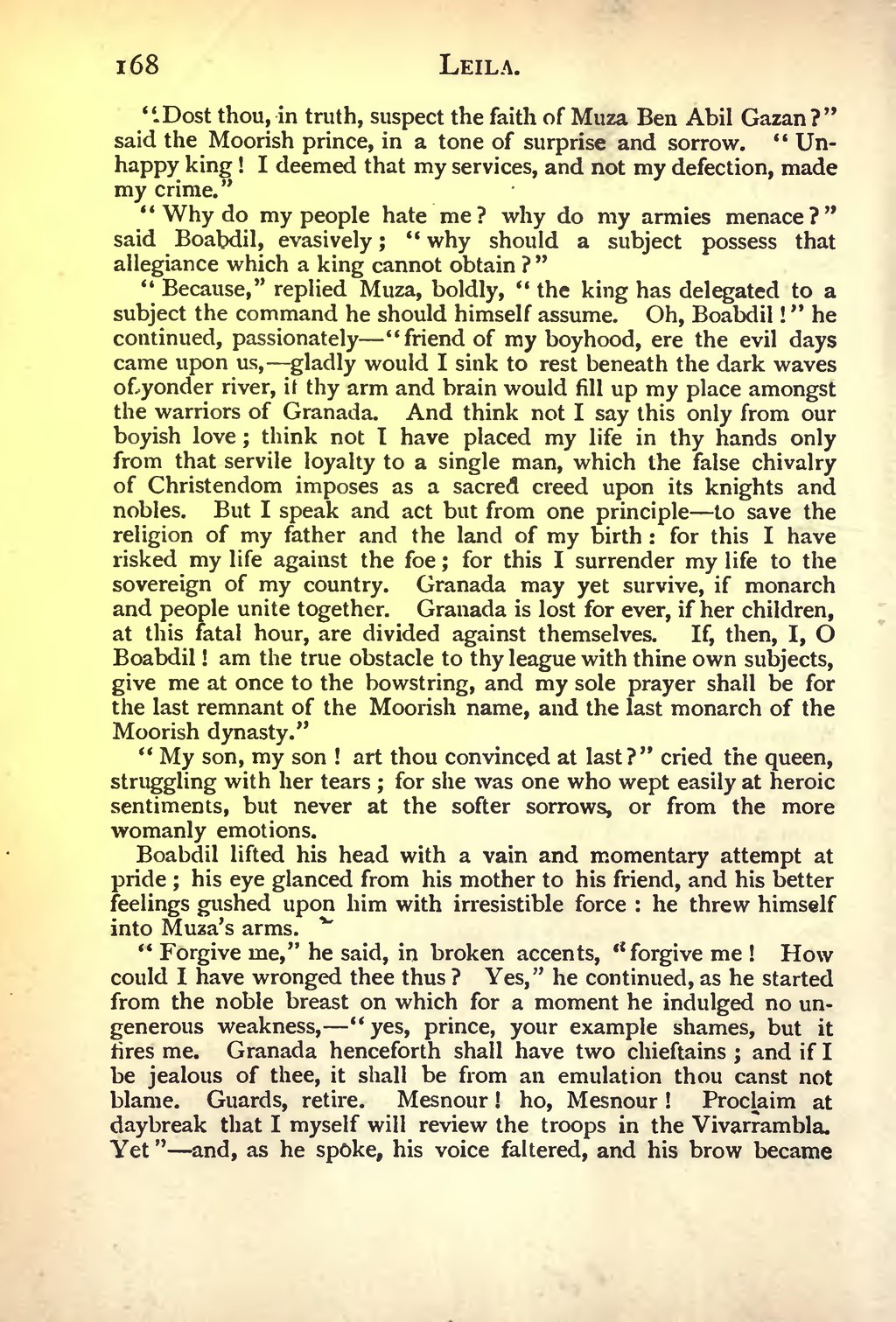"Dost thou, in truth, suspect the faith of Muza Ben Abil Gazan?" said the Moorish prince, in a tone of surprise and sorrow. "Unhappy king! I deemed that my services, and not my defection, made my crime."
"Why do my people hate me? why do my armies menace?" said Boabdil, evasively; " why should a subject possess that allegiance which a king cannot obtain?"
"Because," replied Muza, boldly, " the king has delegated to a subject the command he should himself assume. Oh, Boabdil!" he continued, passionately—"friend of my boyhood, ere the evil days came upon us,—gladly would I sink to rest beneath the dark waves of-yonder river, it thy arm and brain would fill up my place amongst the warriors of Granada. And think not I say this only from our boyish love; think not I have placed my life in thy hands only from that servile loyalty to a single man, which the false chivalry of Christendom imposes as a sacred creed upon its knights and nobles. But I speak and act but from one principle—to save the religion of my father and the land of my birth: for this I have risked my life against the foe; for this I surrender my life to the sovereign of my country. Granada may yet survive, if monarch and people unite together. Granada is lost for ever, if her children, at this fatal hour, are divided against themselves. If, then, I, O Boabdil! am the true obstacle to thy league with thine own subjects, give me at once to the bowstring, and my sole prayer shall be for the last remnant of the Moorish name, and the last monarch of the Moorish dynasty."
"My son, my son! art thou convinced at last?" cried the queen, struggling with her tears; for she was one who wept easily at heroic sentiments, but never at the softer sorrows, or from the more womanly emotions.
Boabdil lifted his head with a vain and momentary attempt at pride; his eye glanced from his mother to his friend, and his better felings gushed upon him with irresistible force: he threw himself into Muza's arms.
"Forgive me," he said, in broken accents, "forgive me! How could I have wronged thee thus? Yes," he continued, as he started from the noble breast on which for a moment he indulged no ungenerous weakness,—"yes, prince, your example shames, but it fires me. Granada henceforth shall have two chieftains; and if I be jealous of thee, it shall be from an emulation thou canst not blame. Guards, retire. Mesnour! ho, Mesnour! Proclaim at daybreak that I myself will review the troops in the Vivarrambla. Yet"—and, as he spoke, his voice faltered, and his brow became
